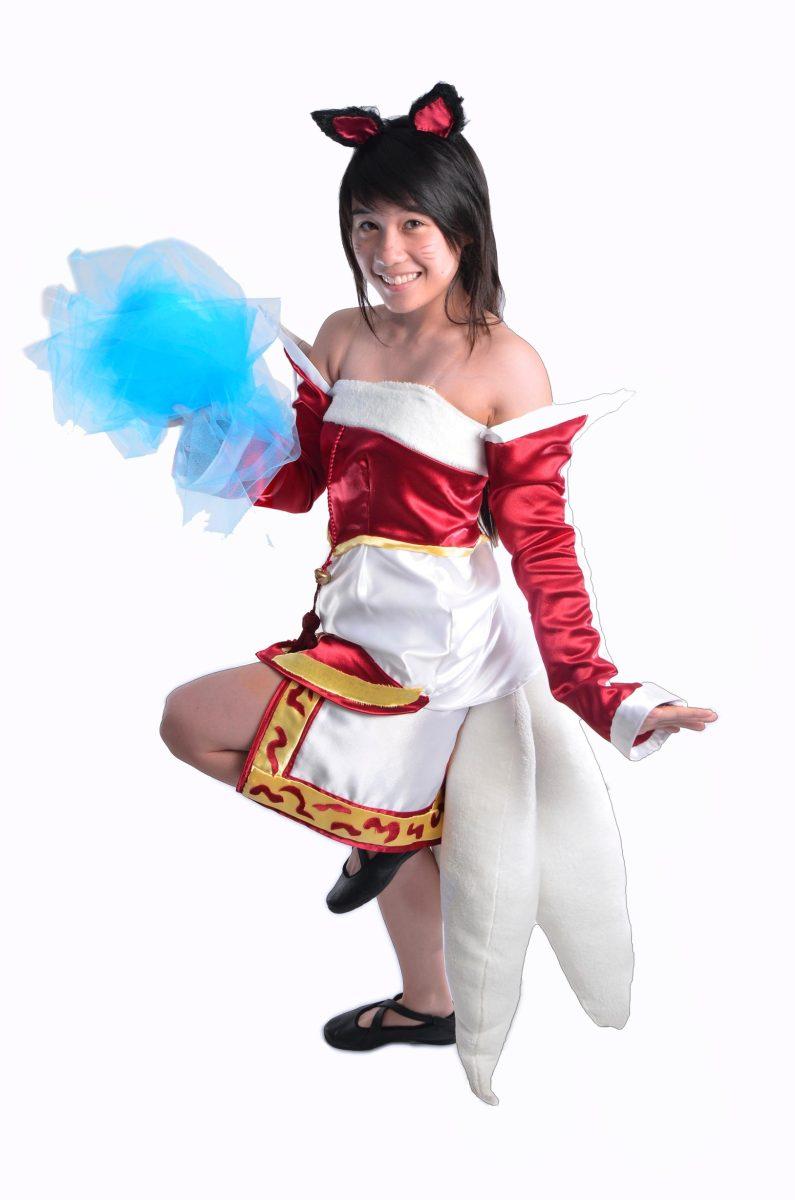On the weekend of May 25, droves of living breathing cartoon and video game characters filled the streets of downtown Raleigh.
This scene has become an annual event every time the Animazement convention opens in Raleigh. Members of the Triangle Area Anime Society at N.C. State started a 36-hour Japanese cartoon marathon in 1997. What started as a small, gathering has blossomed into an event attracting thousands of fans of anime, video games and almost every aspect of what is now known as otaku , or geek culture.
Some of this year’s activities included panels on TV shows and comic book series,gaming tournaments, meeting famous voice actors and musicians, and-most prominently- participating in the hobby of “cosplaying.”
Cosplay , a term coined by combining the words “costume” and “play,” is a popular hobby among anime and videogame fanatics. Fans show their devotion and passion by dressing up as their favorite characters.
According to Feon Mak , a junior in biochemistry, this is one of the highlights of the Animazement event.
“The Animazement convention itself just stands out because you get Naruto walking around in the street and Sailor Moon eating Jimmy John’s, so it’s something out of ordinary,” Mak said, referring to anime characters.
This year’s Animazment convention was Mak’s second, and the second time she participated in bringing a fantasy character to life. This year, she dressed up in a homemade costume to transform herself into Ahri , a character from the action real-time-strategy game “League of Legends.”
For many cosplayers , this practice is not just another attraction at Animazement . It is also an art form that they use to express themselves and connect with other fans.
“It’s nice to get together with other people and dress up and express yourself in a way that you wouldn’t be able to normally,” said Katie Edwards, a senior in costume design at East Carolina University and longtime cosplayer . “People pick characters based on who they relate to and who they are like. You can literally just walk up to somebody and be like, ‘Hey, I don’t know you, let’s be friends.'”
According to Jeff Shu , a senior in textile technology management, feeling of hesitant about publicly sharing one’s passion for cartoons and video games is not uncommon among fanatics. Consequently, the idea of an event just for fans is comforting for many attendees, as they can celebrate without fear of being stigmatized. In some ways, Animazment is also a refuge.
“It’s a time where a bunch of crazy otaku nerds can get together and feel comfortable and relate to each other. A lot of people are maybe ashamed of their hobbies… but at [ Animazement ] they can say, ‘I like this and this and this, and no one would judge them,'” Shu said.
Mak is one such anime fan who has come to enjoy cosplaying over the past two years.
“I’m ashamed,” Mak said. “In the real world if you walk out with five tails on your butt and you’re not wearing regular T-shirts, people assume you’re one of those crazy anime nerds.”
”There are haters everywhere,” Shu said. “Granted, we don’t have one of the best stereotypes. Even in Japan, there’s this stereotypical otaku who’s fat, he wears glasses, he doesn’t leave his room and he has figurines everywhere and he watches anime all day.”
Still, some fans face other struggles when they cosplay . This year, Edwards, through her cosplay , paid tribute to one of her favorite cartoon characters, Yoko, from the anime Tengen Toppa Gurren Lagann . As a character who oftentimes wears particularly skimpy outfits, Edwards observed some misconceptions about her and other fans who choose to celebrate characters with similar outfits.
“There would be people that are like, ‘oh, you’re cosplaying something skimpy, you must be a slut,'” Edwards said,” And, no, I’m obviously not a slut, I just like the character. If you don’t understand the perspective of the character and why people pick the character, it can lead to conclusions based on just what the outfit is.”
However, with popular shows such as Pokemon, Dragonball Z and Sailor Moon and with programs such as Toonami , anime seems to be in the process of breaking into the mainstream. According to Shu , Dragonball Z is now a staple in the young American cartoon diet, and with the popularity of Animezment growing year by year, the otaku culture in Raleigh is maturing and expanding.








